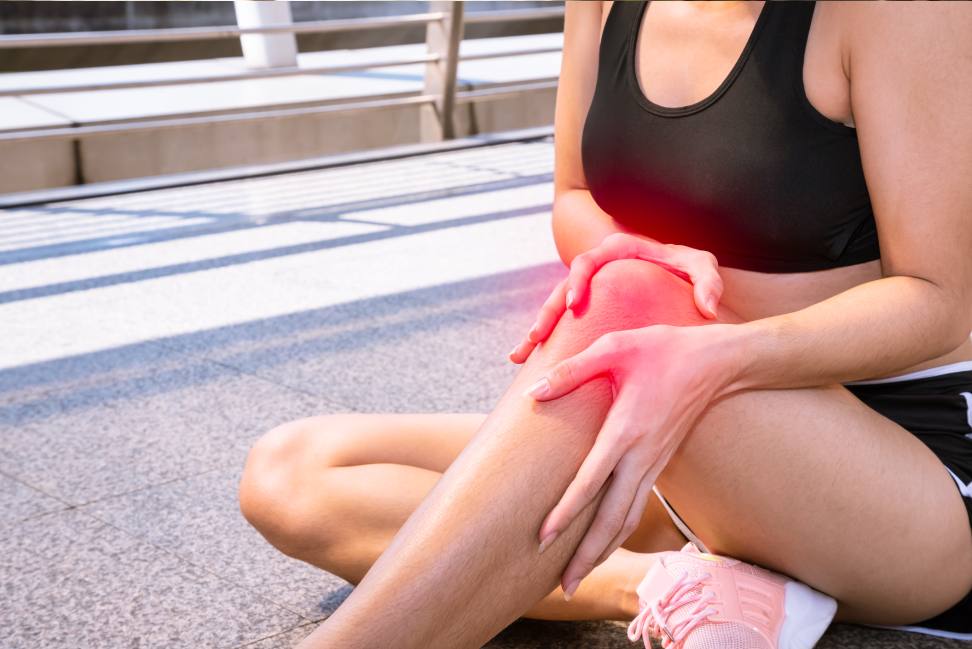As women enter the stage of menopause, their bodies go through many hormonal changes that can affect everything from mood to metabolism. One of the lesser-discussed, yet very prominent change, is the increased risk of osteoarthritis. Many women begin noticing joint pain, stiffness, or reduced flexibility around this phase-and there's a strong physiological reason behind it.
Understanding the connection between menopause and joint health is a great first step toward managing symptoms effectively. At Sanctuary Wellness, our approach is to address the whole person: body, mind, and internal balance for long-term relief and improved quality of life.
Why Menopause Increases the Risk of Osteoarthritis
1. Decreasing Estrogen Levels
The hormone, estrogen, maintains the lubrication of our joints, integrity of the cartilage, and bone strength. The levels of estrogen drop rapidly after menopause. This makes a woman’s joints more vulnerable to wear and tear, hence increasing the chances of osteoarthritis.
2. Loss of Bone Density
The post-menopausal period hastens bone thinning. Weaker bones put additional stress on the joints around them, making daily activities more difficult.
3. Weight Changes Due to Hormonal Factors
During menopause, the body’s metabolism slows down and this can lead to weight gain. Just a few pounds of weight gain can place additional stress on the knees, hips, and spine, accelerating joint degeneration.
4. Increased Inflammatory Response
Menopause changes the inflammation pathways in the body. Estrogen is important to keep the body’s inflammatory markers under control. When estrogen levels drop, this leads to a rise in the chemicals that cause inflammation. The more inflammation, the more stiffness, discomfort, and fatigue in the joints.
Common Symptoms Among Women
- Morning stiffness
- Pain that worsens with activity
- Swollen or tender joints
- Cracking or popping sensations in the joints
- Difficulty climbing stairs or prolonged standing
- Reduced flexibility
How Homeopathy Supports Menopausal Osteoarthritis
Homeopathy offers a natural, gentle, and holistic approach to managing symptoms arising during menopause, including joint discomfort. It focuses not on just addressing the uncomfortable symptoms but also supports the body's inherent ability to heal and rebalance.
1. Holistic Hormonal Support
Homeopathy considers hormonal transitions in their entirety. By supporting emotional well-being, sleep quality, and stress levels, the body becomes more balanced. This, in turn, helps lessen the impact on the joints.
2. Gentle Relief From Joint Discomfort
Homeopathic care can help ease stiffness and support better joint movement without causing dependence on the remedies.
3. Improved Mobility and Daily Comfort
With consistent support, many women notice marked improvement in flexibility, less morning stiffness, and ease in performing daily activities.
4. Personalised Care for Long-Term Wellness
Every woman's experience during menopause is unique. Homeopathy shines in individualised care, taking into consideration emotional, physical, and lifestyle factors all together.
Holistic Self-Care Tips for Stronger Joints After Menopause
Alongside the carefully selected homeopathic remedy, I also encourage my patients to keep a balanced routine that incorporates movement and thoughtful nourishment. Simple lifestyle changes can make a noticeable difference to joint comfort and overall well-being. One of the first things I encourage my patients to take up is simple strength training under the supervision of a qualified trainer. Strength training two to three times a week helps build and strengthen the muscles that protect and stabilise our joints. Adding gentle mobility and alignment practices such as yoga, tai chi, helps with flexibility and improved posture.
Nutrition wise, it is important to eat sufficient amounts of protein and healthy carbohydrates. A lot of women drastically cut down their carbohydrate intake during this time due to fear of weight gain but this is not advisable because good carbohydrates are essential for mood stability. Patients are also encouraged to control their sugar intake as excessive sugar consumption increases inflammation in the body.
Sanctuary Wellness: Your Partner in Holistic Healing At Sanctuary Wellness, we believe in taking care of women through every stage of life, especially during hormonal transitions such as menopause. We address osteoarthritis in a gentle yet comprehensive manner, taking a deep interest in understanding your specific health needs. By incorporating personalised homeopathic care with lifestyle guidance and emotional support, we help women re-establish comfort, mobility, and confidence in their bodies.





